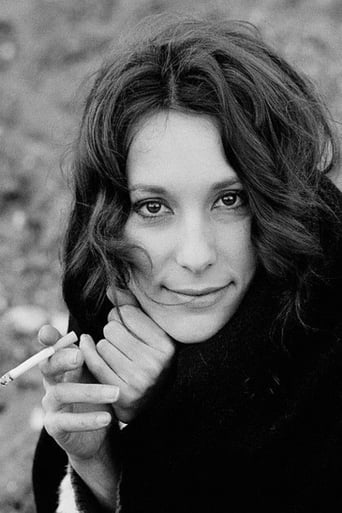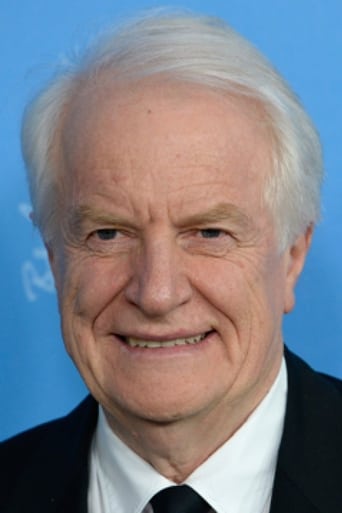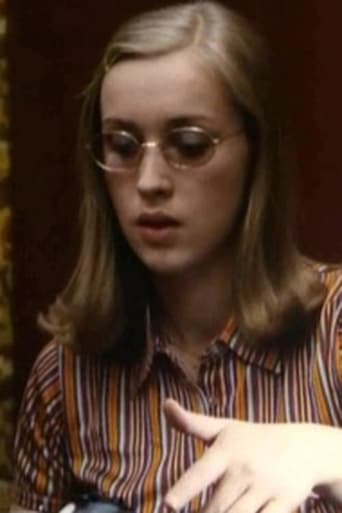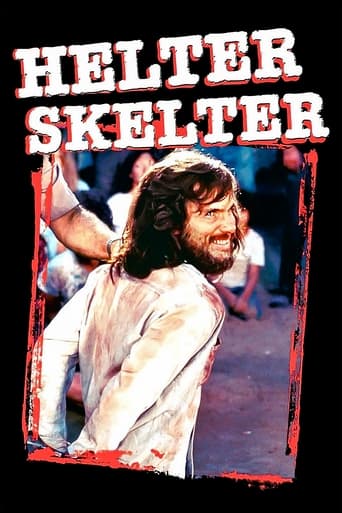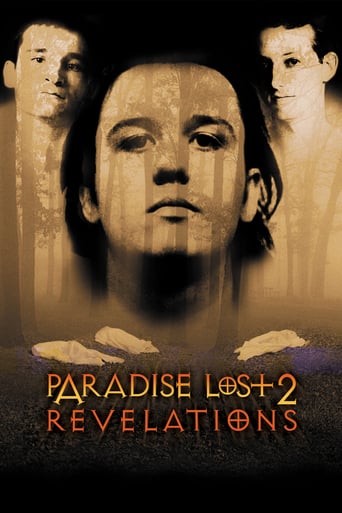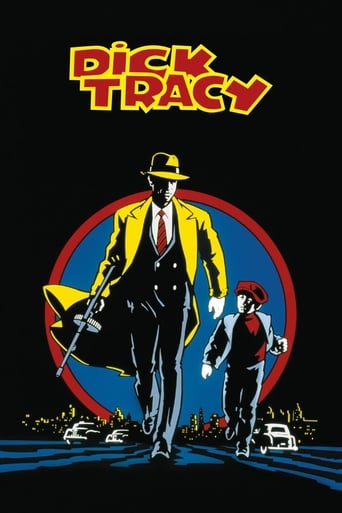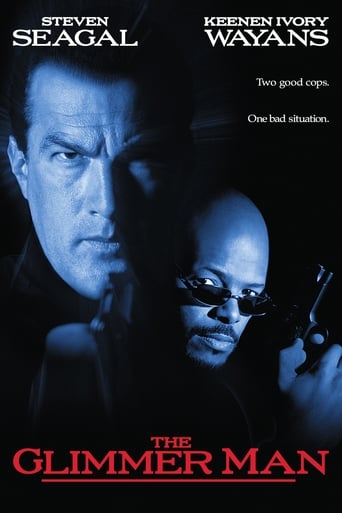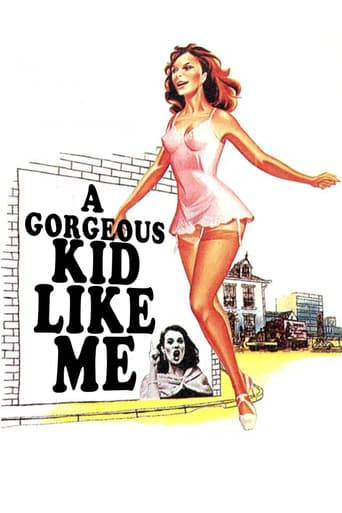
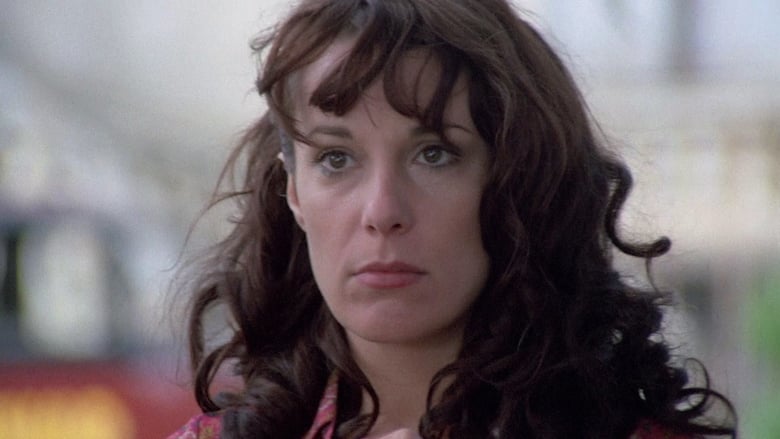
A Gorgeous Girl Like Me (1973)
Stanislas Previne is a young sociologist, preparing a thesis on criminal women. He chooses Camille Bliss as his subject of study and begins to visit her in prison for interviews. Camille became acquainted with trouble at a young age and justifies her actions by "fate-bets." She is currently in prison for allegedly murdering one of her lovers. As she tells Stanislas of her life and love affairs, his interest in her grows to more than just professional. Can he resist her charm?
Watch Trailer
Cast
Similar titles
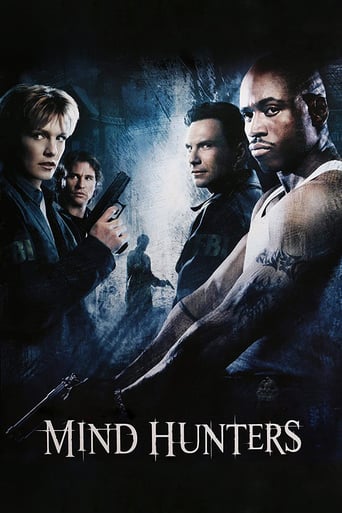


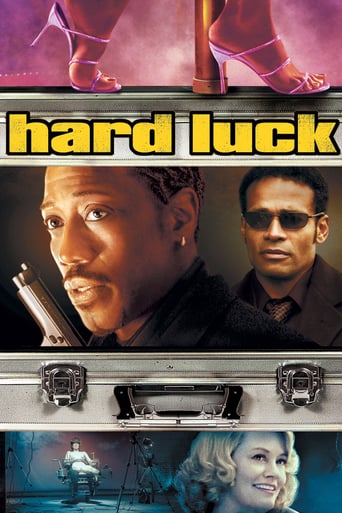
Reviews
Good start, but then it gets ruined
Absolutely Fantastic
It's the kind of movie you'll want to see a second time with someone who hasn't seen it yet, to remember what it was like to watch it for the first time.
This is one of the best movies I’ve seen in a very long time. You have to go and see this on the big screen.
After watching the gripping Bride Wore Black I decided to take a look at the other credits of auteur co-writer (along with Jean-Loup Dabadie) /director François Truffaut.Reading reviews of Truffaut's other works,I spotted a title which appeared to mix sex Comedy with Film Noir!,which led to me getting ready to find out how gorgeous the girl is.The plot:Writing a thesis on female criminals, Stanislas Prévine learns about a prisoner called Camille Bliss,who is in jail for the murder of her dad,and her lover Arthur.Pushing the prison guard to give him a pass, Prévine starts holding a series of interviews with Bliss.Recording the interview so that he and his secretary can make a transcript of the minutes, Prévine begins to hear from Bliss about her wild lifestyle.As he goes deeper into Bliss's life, Prévine finds himself falling in love for her,and also starting to believe that Bliss has been wrongly imprisoned.View on the film:Kicking off Bliss's lifestyle with a young Bliss flying in the air,director François Truffaut, (who just a few weeks before filming had left a clinic after suffering from depression over his breakup with Catherine Deneuve) and cinematographer Pierre-William Glenn let their hair down for a wild child,who leaps across the movie from the tie- dye colour opening to the bitter laughs of Prévine's final interview with Bliss.Placing Bliss and Prévine in Film Noir settings from a grime covered prison to lovers on the run roads, Truffaut & Pierre-William Glenn slide the Film Noir into raunchy sex Comedy.Whilst never feeling fully relaxed, Truffaut makes the genre mash-up a wonderful adventure,with superbly delivered tracking shots following Bliss life of crime being joined by sexy frolics,which includes a race car album being played during sex.Rolling out their adaptation of Henry Farrell's pulp novel with Bliss telling her life story in rapid-fire monologues,the screenplay by Truffaut and Dabadie playfully take on the unreliable Film Noir narrator,by keeping Bliss's narration in a straight line,whilst the flashbacks uncover a life of petty crime and risqué encounters with men and their wives.Spending most of the title in flashbacks,the writers cut terrific interjections into Bliss and Prévine's interviews,which reveal Prévine to be pulled towards an alluring femme fatale.Entering the movie in bottle cap glasses, André Dussollier gives a great performance as Stanislas Prévine,with Dussollier giving Prévine a real passion for Bliss,whilst making sure to keep him an outsider by putting Prévine in a neat dorky tie. Firing the monologues across the screen in a rapid-fire manner,the gorgeous Bernadette Lafont (who also appears topless) gives an excellent performance as Bliss,thanks to Lafont giving Bliss a hilarious sparkle over the unlucky men in her life,and also wrapping Bliss in a mysterious femme fatale shade,as Prévine discovers how dangerous a gorgeous girl can be.
Pastiches in the noble sense of the word, Truffaut's B movies, semiserious and intelligent, are constructed on an unusual reportthe delicious contrast between the finesse and the brutality/ brusqueness. Finesse of conception, of treatment, of methods; brutality and brusqueness of the primary literary sourcestestifying of Truffaut's decadent attraction towards the brutal and the sordid (Truffaut himself had a rather naughty adolescence, and his physiognomy shows a certain human stuff, there are Lombrosian traces that somehow are at odds or seem to contradict his reputation of a gentle, emasculate human being and his high and refined intellectuality; he obviously wanted to look like the angelic leadsLéaud ;he did not).From this juxtaposing of finesse and brutality issue a nonchalance and a delicious contrast. The respective pictures are not _epigone flicks, they are not pastiches in this pejorative sense, they are not derivativebut ingenious, ironic, and contradictory. They are also highly cultured productsthe same vacuum pomp found at Godard as well (with an entire different function in Truffaut's cinema, etc.). This artificiality might seem at first disconcerting; yet it is of a Hitchcockian efficiency, and strictly functional. This artificiality bears valuesseveral values, either human, personal or artistic. It can not be dismissed as a defect. It is part of the charm.
Humor, action, suspense, romance all rolled into this underrated Truffaut film; circa 1972 and probably was not well received during the titles' release. Starting out as a research project for female criminals, to "saving" an innocent prisoner then onto getting imprisoned yourself( The Professor) and the ultimate betrayals from the ones who are charged to protect people from such evils, the Attorney.Bernadette Lafont stars as Camille, the imprisoned woman who has had bad luck since childhood( and she does not help her causes along the way at the most inopportune times), shines and carried this movie the entire way. Her beauty and expressions are at the highest levels ever seen on the silver screen.Yes, many plots and twists, but they are all spaced and placed in order, via flashbacks in the very beginning, and the sequences of subsequent events throughout this film make sense. The audience is not quite sure if Camille deserved her fate in prison and what her true character is like; will she repay the Professor for freeing her as he freed her in kind? Did Camille have what it takes to be faithful to a man or did the continuing bad luck and survival force her into the "easier way out"? The audience cannot possibly expect how this movie turns out, thus achieving the rare quality of total suspense.Cinematography is excellent for a 1972 film, and getting an Exterminator, Western-style Saloon washed-up whiskey-soaked wanna-be and the other characters were all a credit to good writing, and finally, fantastic directing by Truffaut. Part of the French New Wave of Cinema was the exclusion of Studio sets and backgrounds, and it is evident that Truffaut was a Master of locations as he selected unforgettable places and structures.Many say Truffaut was an overrated director. I say not so. Truffaut was brilliant and left this world too soon. If you want to see overrated, keep seeing the Hollywood cookie-cutter promoted-to-the-hilt templates that are the cash-cow machine for the industry.
This is one of the best French comedies that I have ever come across. Most of the humour here is pretty silly stuff, but somehow it works, thanks in large part to Lafont's outstanding performance. But what makes this film a truly great piece of work is the unforgettable ending, a finish that cements it as one of the best black comedies that you'll ever see.
